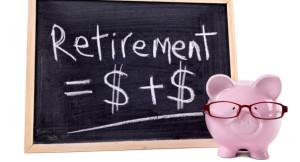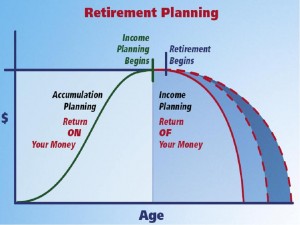 What a question and how ridiculous – Retirement on $190 a Month! There is no way anyone can survive on this amount in retirement or any other stage in your life with today’s cost of living. Retirement on $190 a month is just not possible in North America. Yet recent surveys are finding that unless Americans do something, this is what the average American is looking at in terms of income from their savings and it is not pretty.
What a question and how ridiculous – Retirement on $190 a Month! There is no way anyone can survive on this amount in retirement or any other stage in your life with today’s cost of living. Retirement on $190 a month is just not possible in North America. Yet recent surveys are finding that unless Americans do something, this is what the average American is looking at in terms of income from their savings and it is not pretty.
The conclusion, work longer, save more, and stay healthy! If you do not do all of these things, retirement is not going to be a place that many people want to be. Older people who are retired will need to live with their families and be supported by their families. This is not something that everyone can do or is willing to do. Everyone is much better off if they have saved enough for retirement and can exist on their own.
Canadians are no better off, even though their habit of saving is higher. Could you exist on a Retirement on $190 per Month? They have much higher taxes and medical costs, so it amounts to the same thing. Even though their medical is looked after, they still have to pay for all of our drugs and also their nursing home accommodations just like everyone else. Saving for retirement is the only way we will have the option to retire early if we want to.
Retirement on $190 a Month! – Work Longer
Some will want to continue to work past the traditional retirement age, for fun or for the social aspect. But if you have sufficient savings set aside at least you have the option to work or go on a trip or just hang around with family! What we are really talking about is starting when you are young and building financial independence so that you can retire when you want, so that layoffs and downsizing do not worry you and so that you are free to pursue your dreams as you get older. You may want to retire when you are 50 or wait until 75. Either way, if you have saved for retirement, you have the options and the power to do what you want.
Some Information from the Survey by Wells Fargo
A Wells Fargo annual retirement survey which polled nearly 2,000 middle-class Americans ranging from 20 to 60 years old, found that Americans aren’t saving enough, and they are more likely to end up working through retirement. We are seeing more and more older people working for minimum wage jobs at some of the big box stores and also in the service industry. One guy we know is 78, still works at a coffee shop so that he can head south during the wintertime!
While most Americans predict they will need a nest egg of $300,000 to live on for 19 years in retirement, the average savings of 50-somethings is only $29,000, which comes out to an income of $190 a month over 20 years assuming a 5% rate of return. That is incredibly low and just not sustainable if you live beyond retirement age.
Are you saving enough for retirement?
Add in Social Security or other sources of income, and most people are not going to be able to cover basic needs with such a small amount of money. They will need to be able to live with family or friends to help with some of the lodging costs and who really wants to do that. Retirement on $190 a Month! is not a reality for most people, thankfully.
The recession has impacted many people, losing jobs, working for less, and reducing their savings, however, if you were not saving before the recession, chances are that you still are not saving for retirement today. We all need to change our habits and quickly if we want to be comfortable in old age.
According to the survey, only 33% of Americans have a detailed written retirement plan and 37% don’t know how much they will need in retirement or how long they will be able to live on what they have saved.
The survey found that 72% of Americans now expect to work through retirement, with 39% saying they will work because they have to and 33% saying they will do it because they want to. Whether you are working for enjoyment or because you need to, would you not rather have the independence to work or not work only because you felt like it and not because you had to?
Start saving now. If you are 21 today, saving $50 a paycheck for the next 30 years will put you in a very comfortable place financially! Remember, Retirement on $190 a Month! is just not possible. For more retirement planning and retirement income thoughts and ideas, click here.
 Everyone should consider five fundamental retirement issues if they are going to retire anytime soon! Savings, income, expenses, health, and time management. If you have a plan for each that meets your needs in retirement, you are well on the way to a successful and satisfying retirement. Many people only think about retirement once they are heading out the door. Either voluntarily or forced out in a corporate restructuring or downsizing. Don’t wait; develop your plan now!
Everyone should consider five fundamental retirement issues if they are going to retire anytime soon! Savings, income, expenses, health, and time management. If you have a plan for each that meets your needs in retirement, you are well on the way to a successful and satisfying retirement. Many people only think about retirement once they are heading out the door. Either voluntarily or forced out in a corporate restructuring or downsizing. Don’t wait; develop your plan now!






